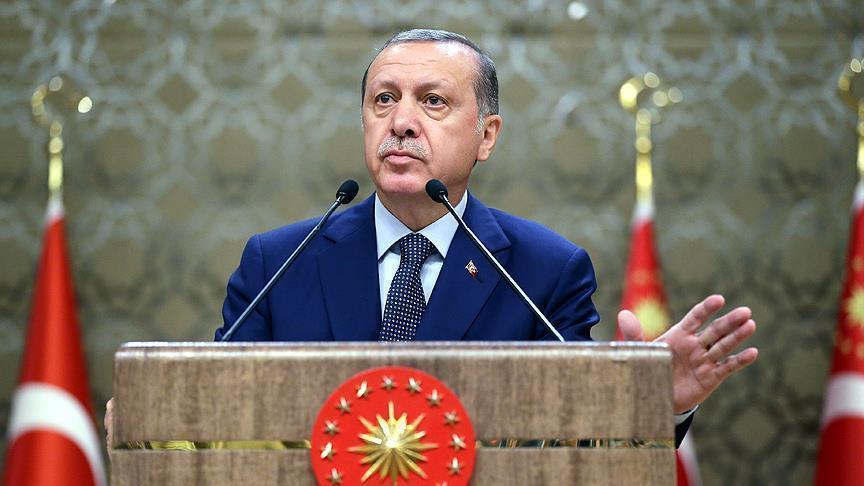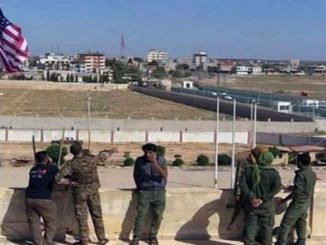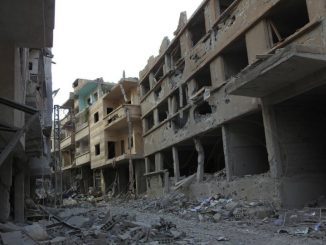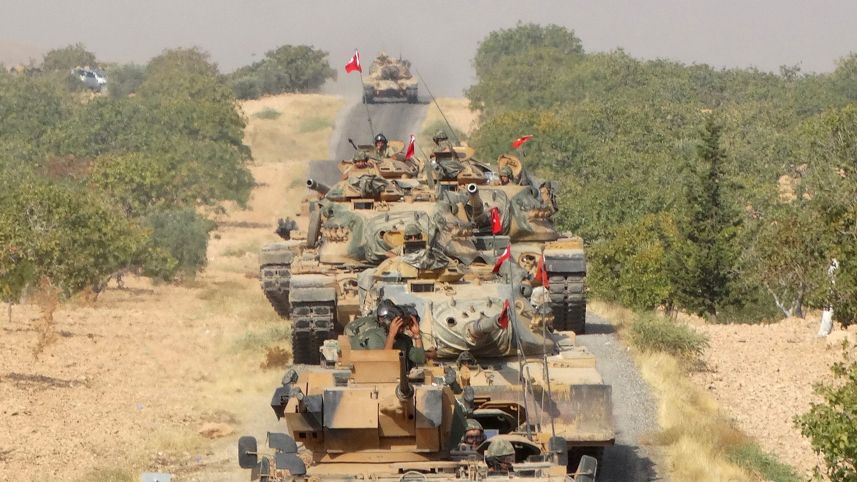
As Turkey improved its relations with Russia in the past months and became an essential side in the talks to end Syria crisis, it kept its relations with the US relatively normal and coordinated fight against ISIS in northern Syria. However, Turkey might be cornered as the both countries started working against its interests.
Turkey’s military operation in Syria named Euphrates Shield, which was launched last August to drive Islamic State militants from its border and prevent Kurdish fighters from gaining ground and strengthening their positions, has changed the balance of power in northern Syria and added more tension to the already complicated area.
Turkey operations started on August 24 alongside allied rebel forces who have managed to retake the ISIS stronghold of Jarabulus, alongside with al-Rai to the west and Dabiq city. Now their operation is focused on al-Bab as the last major stronghold for ISIS in northern Syria.
Turkey also attacked the YPG Kurdish militias ordering them to withdraw from East Euphrates region. The Turkish military also shelled Kurdish militias’ positions in northern Syria while the rebel forces clashed with them in many incidents.
Turkey sees the PYD and their armed wing YPG as an extension of Kurdish PKK militants who have waged a three-decade insurgency in southeastern Turkey.
Turkey fears the YPG will try to connect three de facto autonomous Kurdish cantons that have emerged during the five-year war to create a Kurdish-run enclave in northern Syria, stoking the separatist ambitions of Kurds on its own soil.
US support for the Kurdish militias
The Syrian Democratic Forces (SDF) alliance, which is dominated by the Kurdish YPG militia, is supported by the US as the latter uses them in its war against ISIS. However, this relationship has angered Turkey.
The SDF launched a campaign with the ultimate aim of capturing Raqqa in November. The first two phases focused on capturing areas to the north and west of Raqqa, part of a strategy to encircle the city.
The U.S.-led coalition fighting Islamic State has boosted support for its Syrian allies, supplying armored vehicles for the first time as they prepare for a new phase in their campaign to capture Raqqa, a spokesman for the militia said on Tuesday
SDF spokesman Talal Silo said the delivery of the armored vehicles marked a significant improvement in U.S. support and attributed the change to the new administration. Trump says eradicating Islamic State will be one of his biggest priorities.
“Previously we didn’t get support in this form, we would get light weapons and ammunition,” Silo told Reuters. “There are signs of full support from the new American leadership — more than before — for our forces.”
However, US officials said that those arms were not sent upon the new US president’s orders but had been planned prior to the election, during the Obama administration.
“Yes, this transfer has been in the works for months- prior to the election. These kinds of transfers sometimes take a while to arrange and complete. I wouldn’t try to read too much in to the timing,” Pentagon spokesperson Eric Pahon said.
Pentagon spokesman Major Adrian Rankine-Galloway said in an-email that the delivery was provided as part of already existing authorities to enable the coalition. “Specifically, these vehicles will help them contend with ISIL’s IED threat as they move toward Raqqa”, he said, by using a different acronym for ISIS.
Pentagon and the SDF have refused to provide the exact number of armored vehicles that have been delivered. Photos that surfaced on the internet showed that SDF had received IAG Guardian model armored vehicles.
The Russian move
Till the end of last week almost nothing was revealed about the content of the talks between the Syrian government and opposition groups at Astana in Kazakhstan, though a mood of disappointment seemed to be setting in among the various groups in the Free Syrian Army opponents of the regime.
However if Russian press sources are to be believed, a draft constitution was presented to participants at Astana by the Russian delegation. The details that have been revealed are deeply unpalatable both for the regime’s Sunni Arab opponents and for Turkey.
Under the draft, a non-Arab, non-Islamic state would be created. It would be based on cultural and religious diversity, with the non-Sunni group (30 percent of the total based on the country’s pre-war population) holding an entrenched position.
No map has yet been published but obviously Assad would retain the prosperous coastal provinces while the Sunni area would probably be in the north near Turkey.
“The cultural diversity of the Syrian society will be ensured,” the draft stated. The plan would stop just short of outright federalism, something which almost everybody in Turkey is nervous about on principle, regarding it as the prelude to a permanent breakaway by the Syrian Kurdish enclaves known as Rojava along the south of the Turkish border.
A PYD delegation was invited to Moscow on 26 January to be briefed on the outcome of the Astana meeting and the new constitution by Sergey Lavrov, the Russian foreign minister. However last Friday, a Russian spokesperson backtracked, denying Russia supported autonomy for the Kurds.
The immediate implication of this is that, regardless of whatever Trump decides on, Russia is not going to acquiesce in a future attempt by Turkey to subdue “Rojava”, as the Syrian Kurdish enclaves style themselves.
Turkey’s anger
Turkey’s top security board has indirectly urged the United States that “supplying weapons to terror organizations” would only “help terror gain strength and spread it,” in an apparent reference to Washington’s policy of allying with the Syrian Kurdish Democratic Union Party (PYD).
“Recognizing terror organizations as interlocutors and delivering arms to them through various ways will help terror gain strength and spread it,” read a statement issued following the bi-monthly National Security Council (MGK) meeting late on Feb. 31. The meeting was held under the leadership of President Recep Tayyip Erdoğan and top civil and military officials.
“Protection and reinforcing the ceasefire in Syria as well as the Astana talks were discussed in detail, while it has been confirmed that Turkey’s efforts to launch a political transition period [in Syria] and fulfill its humane responsibilities will continue,” it added.
Ankara considers the YPG a terrorist group and the offshoot of the outlawed PKK, which itself is listed as a terror organization by the U.S., Turkey and the EU. Ankara has voiced concerns over U.S. support for the SDF and YPG, under the auspices of YPG’s goals to make demographic changes to the regions seized from Daesh.
Ankara has repeatedly stated that any military support provided to the PYD-YPG is eventually transferred to the PKK, ultimately posing a threat to Turkey.
Ankara also worries about the possibility of a Moscow-Washington joint effort in Syria that conflicts with its interests. an analyst believes Putin revealed his true intentions in Syria “by promising the PYD autonomy.” Maintaining that Trump has “great admiration for the armed Kurdish groups in Syria,” Ocaktan contended, “Considering Trump’s admiration for Putin, it won’t be a surprise to see them form an alliance in Syria.”
Russia’s support for a secular constitution for Syria, which the Assad regime reportedly wants, is also a potential source of discomfort for Erdogan and the AKP, given their Islamist orientation. Syrian UN Ambassador Bashar Jaafari claimed after the Astana talks that Turkey had blocked a reference to secularism in Syria from the final communique. Ankara has made no official comment on the claim.
Russia expert Kerim Has from the International Strategic Research Organization / Centre for Eurasian Studies in Ankara underlined this point. “Turkey’s hand is not strong in its relations with Russia. It has to go along with Moscow’s line on Syria out of necessity,” he said. “It is not possible for Russia to please Turkey under these circumstances, but Ankara can’t raise its voice too much against Russia or the US.”



